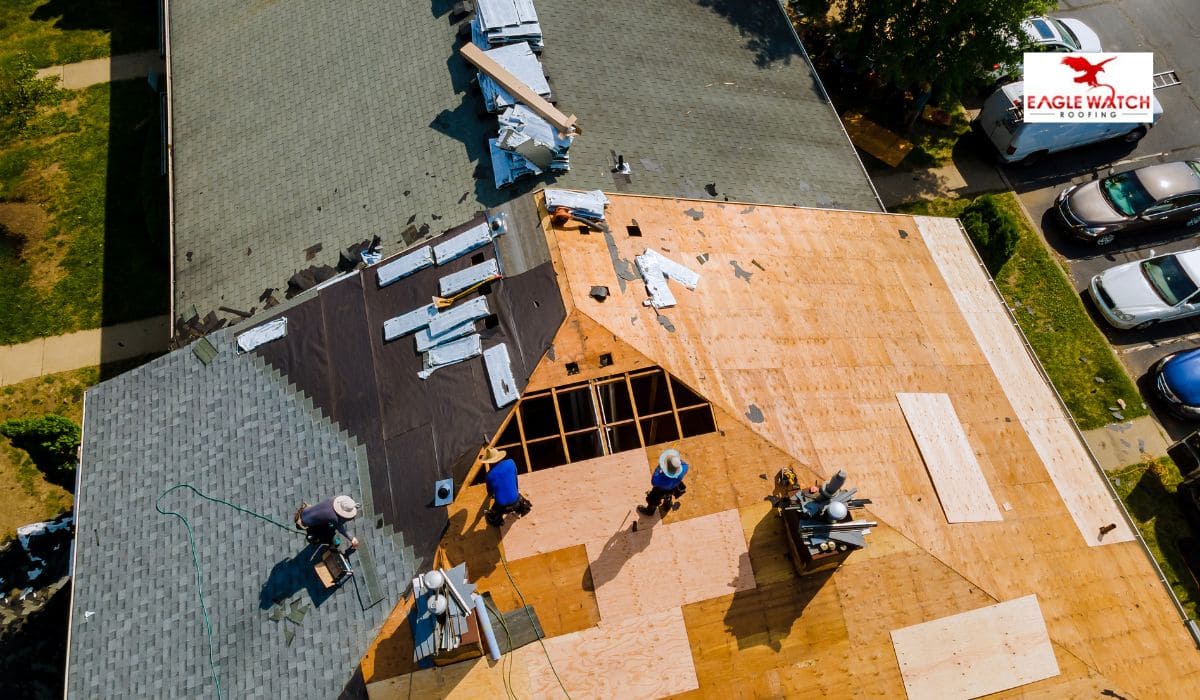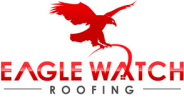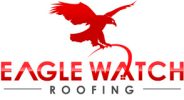Top 5 Tips for Effective Commercial Roof Maintenance Year-Round
Most people don’t give much attention to the maintenance of a commercial roof in building management.
However, that is one of the most significant elements that can protect your investment
A well-cared-for roof will keep your property safe while lengthening its lifespan and increasing efficiency.
With seasons comes change, as well as the challenges roofs face, be it the harsh winters or scorching summers.
Knowing how best to care for your commercial roof throughout the year will spare you time, money, and headaches down the road.
Whether you are a new property owner or have decades of experience, installing a good maintenance plan is always important.
This guide will lead you through practical tips to ensure that your commercial roof is always in great shape, even during extreme weather.
Diving into these insights, you can be better prepared when the storms start to roll in or the temperature rises!
Why Preventative Maintenance Matters
Preventive maintenance is the mainstay of good commercial roof management.
It is just a matter of checking and anticipating potential problems to catch before they become costly.
An effective approach that extends your roof’s life and protects your building in its entirety.
Proper maintenance will enhance the energy efficiency of your roof.
You could lose a lot of air with a small leak or damage in the ceiling, making your HVAC systems work harder, which means higher utility bills and less comfort for the space occupants.
Another reason preventative maintenance matters is safety.
A compromised roof poses risks, from water damage affecting structural integrity to hazards like falling debris during storms.
Regular checks ensure that any vulnerabilities are identified and remedied promptly.
Another reason for maintaining a commercial roof is that it boosts property value.
A solid roofing system indicates good upkeep to potential buyers or tenants, making it more appealing in a competitive market.
Many warranties require a maintenance check as part of their agreement, and not doing so might void coverage at the worst moment.
Spending a little bit of time upfront saves a lot in peace of mind and money.
Year-Round Commercial Roofing Maintenance
Proper commercial roofing maintenance is essential to protect your investment.
Regular upkeep prevents minor problems from turning into costly repairs.
A proactive approach ensures the long life of your roof and saves you money in the long run.
Seasonal changes put a lot of pressure on roofing materials.
Rain, snow, and intense heat all pose different sorts of challenges.
An annual maintenance schedule means you can take precautions against these factors before they seriously damage your roof.
This could include checking your roof after extreme weather events.
Any commercial rooftop system requires proper maintenance of its drainage.
Clogged gutters or downspouts result in pooling, which may later affect structural integrity.
Clean out and have the drainage running perfectly at all times of the year.
Another significant part of proper maintenance is to check for any leakage or damage due to heavy foot traffic while inspecting or repairing.
Minor issues are addressed before they become major and impact other building parts.
All maintenance activities should be recorded.
This information is valuable in identifying trends over time.
It will be useful in determining if major repairs or replacements are required as wear continues with age.
Choose the Right Roofing Material
Commercial roofing maintenance requires choosing the right roofing material.
Each type of material has its strengths and weaknesses, so it is essential to choose one that meets your building’s needs.
For example, TPO or thermoplastic olefin offers superior energy efficiency and durability at a fair price.
It is also light in weight, thus reducing structural stress over time.
EPDM, or ethylene propylene diene monomer, provides superb weather resistance and longevity but demands more frequent inspections.
Metal roofs are increasingly becoming popular due to their ability to resist harsh weather conditions.
They reflect heat very well, thus lowering cooling costs during hot months.
However, they might be prone to rust if not well maintained.
Due to affordability, asphalt shingles can easily be seen in small-scale commercial environments; however, it has a shorter lifespan than others.
To decide on it, compare the long-term costs against the initial investment.
The pros and cons of each roofing material will guarantee your choice of roofing material will complement year-round efforts for roof maintenance.

Be Aware of Your Warranty and Maintenance Plan
Knowing your warranty can make effective commercial roofing maintenance a more practical venture.
Warranties differ widely from material to material regarding coverage and length.
Take some time and go through each one in detail.
With such knowledge, you can best use warranty protection against damage when required.
Your maintenance plan should correspond with your warranty requirements.
Most warranties mandate regular check-ups and up-keeping as a stipulation to obtain coverage, and skipping them usually voids the warranty and exposes you to costly repairs.
Maintenance activity records should also be provided.
Maintain a record of inspections and repairs made on the roof.
It is a very good tool for proving that one is compliant, and by following such records, certain recurrent problems are addressed.
If you are unsure about what your warranty covers or how it works, you can contact your roofing contractor or manufacturer’s representative for clarification.
They can give you valuable insights tailored to your specific situation.
Knowing your warranty and maintenance plan will help protect your investment while ensuring long-lasting results from commercial roof maintenance efforts.
Schedule Regular Inspections
The key maintenance of commercial roofs involves regular inspections.
They help to spot issues before they become expensive to repair.
It is best to schedule these inspections at least twice yearly so your roof will stay in its prime condition.
During an inspection, trained professionals can spot cracks or blisters indicating signs of wear and tear.
If detected in the early stages, it could be tackled and prevented from becoming a major headache.
A small issue, if ignored over time, leads to significant damage.
It is not just about looking for physical damage, but regular assessments also check the performance of your roofing system.
Drainage efficiency and material integrity are important in maintaining durability against harsh weather conditions.
The best times to schedule inspections are usually in spring and fall when the weather is milder.
This way, any winter-related damages will be attended to promptly while preparing the roof for seasonal changes.
This, too, is beneficial in keeping a record of every inspection.
This can help in knowing patterns over time, thus allowing you to make informed decisions on repairs or upgrades when needed.
Continuous attention to this practice significantly contributes to the longevity and reliability of your commercial roof.
Keep the Roof Clean
A clean commercial roof is vital to maintaining its lifespan and function.
If debris piles up on it, there could be many problems, such as water accumulating, which would strain roofing materials.
Cleaning is preventive in these issues.
Leaves, branches, dirt, and other debris can trap moisture against a roof surface.
This results in an environment that thrives for mold growth over time or structural damage.
There is better drainage with a cleaned roof and less chance of leaks, too.
Seasonal storms may deposit additional debris on your roof that requires prompt attention.
After a storm, it’s wise to inspect your roof thoroughly.Remove any fallen branches or accumulated leaves to ensure nothing obstructs proper drainage.
In addition, clear gutters are as important as they contribute to the proper water flow away from your building’s foundation.
Clogged gutters can cause overflow and potentially damage the roof and walls.
Regular inspections while cleaning will also alert you of any possible damage to appear early in blistering or cracks, which would worsen if left untouched.
Keeping your commercial roof clean improves aesthetics and helps secure your investment long-term.
Employ Professional Roofers for Seasonal Maintenance
Hiring professional roofers for seasonal maintenance can save you time and stress.
With the changing seasons, your commercial roof faces unique challenges.
From heavy snow in winter to intense heat in summer, each condition requires specific attention.
The trained roofers will see defects and problems that might not have occurred to the non-professional.
They will know the signs and address them when they happen to prevent the expense of major repairs.
Frequent check-ups by experts mean the weaknesses are strengthened as soon as possible.
Seasons also bring debris like leaves, branches, and dirt that can accumulate on your roof.
Professionals will thoroughly clean your rooftop, preventing water buildup and other complications from clogged drainage systems.
Their experience allows them to perform this task safely without risking damage.
Hiring professionals also keep you compliant with local building codes and regulations on roofing standards.
This is important to ensure the safety of occupants in your commercial property.
Seasonal maintenance investments by trained professionals will, in the long run, prolong the life of your roof while protecting your investment over time.
It’s a smart move that pays off in peace of mind and enhanced property value.
Conclusion
It is very important to keep a commercial roof in good shape to protect your investment and your building.
Regular maintenance keeps you from having to deal with expensive repairs later.
A proactive approach prevents a small problem from becoming a large one.
The knowledge of what the specific needs of your roofing material entail will help you customize your maintenance efforts.
Different types have different vulnerabilities, and knowing yours makes all the difference in maintaining its integrity.
With this knowledge, you are likely to choose the right products and services that will enhance durability.
Maintaining the warranties will also play a huge role in successful roof management.
Many manufacturers offer specific guidelines that have to be followed to keep coverage intact.
Familiarity with such terms ensures you’re not inadvertently voiding any associated benefits.
Regular checks help in the early detection of issues like leaks or damage due to weather conditions.
It becomes easy to know that anything problematic will be sorted out sooner rather than later if the reviews are done regularly throughout the year.
Hiring expert roofers ensures quality insight and artistry during seasonal maintenance jobs.
It brings the experience and specialized equipment necessary for proper checking as well as compliance with standards of safety.
Commercial roof maintenance is crucial in protecting the investment in your roofing system and allowing it to last longer.
Regular upkeep prevents costly repairs and makes it last long, thus the importance of being aware of common questions surrounding the topic.
FAQ’s
How often should I inspect?
Ideally, you want a professional inspection at least twice a year, spring and fall, to catch problems before they get out of hand. If your area experiences severe weather events, consider additional checks afterward.
Can I perform maintenance myself?
You may choose to maintain it on your own; for some things, like clearing debris, you may be able to handle the task independently. However, with complicated inspections and repairs, hire professionals; they are usually specialized, have better tools, and can locate hidden problems.
What materials need which kinds of maintenance?
Various materials require different types of care. For example, you will seal flat roofs more frequently, while sloped roofs would have more to do with cleaning the gutters. The knowledge of such details will make you fit your strategy accordingly.
Is it worth investing in preventative maintenance plans?
Absolutely! Preventative plans can save significant costs over time by identifying small problems before they become major headaches. Ensuring routine care translates into better performance from your commercial roof long-term.


